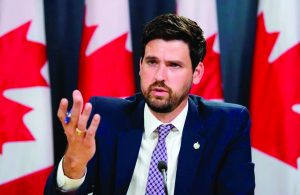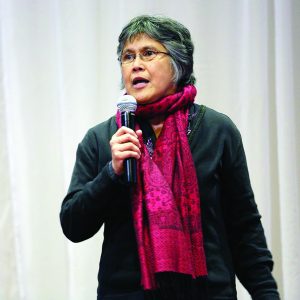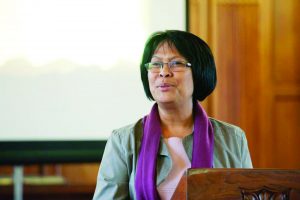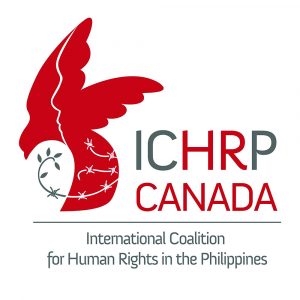Canada doubles resettlement spaces for human rights defenders
Canada doubles resettlement spaces for human rights defenders

Sean Fraser, Minister of Immigration, Refugees and Citizenship
Filipino Canadian advocates react
By Lui Queaño
LJI Reporter
The Philippine Reporter
The Canadian government recently announced that it will increase the number of human rights defenders (HRDs) to be welcomed in Canada from countries where they are persecuted or their lives are in danger because of their human right work.
Last July 25, 2023, Minister of Immigration, Refugees and Citizenship Simon Fraser announced the expansion of the human rights defenders stream, doubling the number of resettlement spaces from 250 to 500 for HRDs and their family members, according to an official press release.
The statement says:
“The initiative, propelled by the belief that no one should face persecution for championing justice, reflects Canada’s unwavering commitment to providing a sanctuary for those who risk their lives in the pursuit of fundamental freedoms.
“Human rights defenders help build the inclusive and democratic societies that contribute to a peaceful and prosperous international community. Canada has a proud and long-standing tradition of responding to the needs of vulnerable people. For the fourth year in a row, we were the top resettlement country in the world, welcoming over 47,500 refugees from over 80 countries in 2022. Canada was one of the first countries to offer a dedicated, permanent pathway for HRDs. The expansion of the global refugee stream for HRDs and partnership with civil society organizations fulfills a ministerial mandate commitment,and is a clear statement of Canada’s dedication to supporting and protecting HRDs at risk.
“As part of Canada’s commitment to HRDs, we will also re-engage Canadian civil society organizations over the coming months on the development of a temporary protection pathway for HRDs in need.
“When we provide effective support to HRDs around the world, we enable them to carry out their work in a safe environment while protecting them from harm. Through the newly expanded global refugee stream for at-risk defenders, Canada will help HRDs defend the vital and fundamental human rights that we all deserve and give them more options to permanent residence when it is unsafe to return home.”
Minister Fraser says: “Canada firmly believes that protection of human rights is the cornerstone of a just society. As the world grapples with numerous human rights challenges, Canada is reinforcing its role as a global leader in promoting human rights and protecting those who safeguard them. By doubling our resettlemtn for human rights defenders, we send a resounding message of support and solidarity, ensuring that those who fight for justice are not left alone in their struggle. Together, we will continue to champion human rights and foster an environment where individuals can freely exercise their voices without fear of persecution. We call on our international partners, other resettlement countries and advocates for more dedicated protection measures.”
Meanwhile, human rights advocates in Canada have welcomed this development of increasing the numbers of human right defenders, but consider the measure is not enough to immediately protect the human rights defenders in the Philippines whose lives are at risk.

Erie Maestro, a human rights activitist based in Vancouver
Doubling resettlement spaces to 500 is welcome.
But Canada must put more teeth to its human rights commitments.
Erie Maestro, a human rights activitist based in Vancouver says:
“Any expansion or addition to spaces, from 250 to 500 spaces, of the global human rights defenders stream is always welcome, for the human rights defenders in the Philippines and elsewhere where there is authoritarianism, tyranny, and gross violation of human rights.
“While it is good for Minister Fraser to say that Canada is a “global leader in promoting human rights and protecting those who safeguard them,” Canada can go a step (or many steps) further by ending its use of quiet diplomacy in the Philippines and put more teeth in its commitment to human rights in the Philippines. The coming to power of the Marcos Jr and Sara Duterte government has not meant a reduction in human rights violations, nor a stop to red-tagging which has always been a prequel to arrest, detention, or worse, killing or enforced disappearance. The Philippine government’s anti-terror task force has extended its long arm of red tagging to countries like Canada and aggressively attacking migrant rights defenders in its malicious scheme of disinformation and lies. In the face of such attacks against human rights defenders in and out of the Philippines, Canadian quiet diplomacy does not work.”
Human rights defenders need immeditatre safety measures and temporary relocation
Bern Jagunos, Advocacy Co-Chair of ICHRP Canada says:
“In 2019, the Canadian Government issued “Voices at Risk: Canada’s Guidelines on Supporting Human Rights Defenders”, aimed at putting into concrete actions Canada’s commitment to human rights and provide “effective support to people around the world who work for human rights by…ensuring they are able to carry out their work in safe environment and protecting them

Bern Jagunos, Advocacy Co-Chair of ICHRP Canada
from harm.” Voices at Risk prescribes a set of concrete actions that Canada’s Embassies overseas can take to support human rights defenders who face danger to their life and safety. Among these measures: that Embassy staff meet human rights defenders to gather information and assess the risk they are facing and to report their findings to Global Affairs Canada, to issue public statements about HRDs at risk, attend court hearings of HRDs who face charges, visit them in prison, etc. Voices at Risk also provides that Canada’s embassy can assist HRDs at risk to relocate temporarily in Canada or in another nearby country to remove them immediately from situations that pose great risk to their lives and safety.
 “Since the adoption of Voices at Risk in 2019, ICHRP Canada has constantly called on the Canadian Government, specifically Global Affairs Canada and the Ambassador of Canada in the Philippines to apply the tools in Voices at Risk to support the HRDs in the Philippines facing grave and immediate risk, especially those who are the subjects of the government and military red-tagging campaigns. In numerous cases at meetings and in writing, ICHRP Canada asked Global Affairs Canada and the Embassy in Manila to meet with human rights organizations and individual HRDs at risk, issue public statements, visit individual HRDs and communities at risk, visit political prisoners, attend the hearings of HRDs facing trumped up charges, etc. In some cases, we also called on the Embassy to assist HRDs who needed immediate sanctuary within the country or temporary relocation outside to remove them from the immediate and grave danger they were facing. The Embassy in Manila never responded to these calls from ICHRP.
“Since the adoption of Voices at Risk in 2019, ICHRP Canada has constantly called on the Canadian Government, specifically Global Affairs Canada and the Ambassador of Canada in the Philippines to apply the tools in Voices at Risk to support the HRDs in the Philippines facing grave and immediate risk, especially those who are the subjects of the government and military red-tagging campaigns. In numerous cases at meetings and in writing, ICHRP Canada asked Global Affairs Canada and the Embassy in Manila to meet with human rights organizations and individual HRDs at risk, issue public statements, visit individual HRDs and communities at risk, visit political prisoners, attend the hearings of HRDs facing trumped up charges, etc. In some cases, we also called on the Embassy to assist HRDs who needed immediate sanctuary within the country or temporary relocation outside to remove them from the immediate and grave danger they were facing. The Embassy in Manila never responded to these calls from ICHRP.
“When ICHRP learned that the Government was planning to create a Human Rights Defenders refugee stream, we welcomed the news. A Member of Parliament who was involved in drafting the bill consulted ICHRP Canada and invited us to provide input. Based on the suggestions from Philippine partner HRDs, ICHRP recommended the following: that the program provide swift relocation of HRDs who need to be removed from situations of immediate and grave danger, that the relocation be temporary and that the processing of the relocation permit/visa be done at the Embassy in Manila or in the location where the HRD is situated. Which I think is similar to the idea/tool prescribed in Voices at Risk.
“The current HRD refugee stream does not include the above mentioned features recommended by ICHRP. It is designed for HRDs who are seeking permanent relocation. Our Philippine partners informed us that the HRDs at risk we work with in the Philippines are not seeking permanent relocation in Canada. They seek to relocate temporarily while the risks to their safety and security last. We also understand that the HRD applicants who are outside of Canada have to follow the UNHCR refugee resettlement process and if in Canada, the regular refugee application process. The difference is that, if they apply under the HRD stream, their applications are fast-tracked. Even then, it is still not the swift relocation that our Philippine HRD partners at risk need or hope for.
“I am not knowledgeable about the refugee application process, so I am not sure if my information and understanding of the HRD stream are correct. Nonetheless, even if the process for HRD refugee stream are fast-tracked, it is still not responsive to the needs of the HRD’s in the Philippines we work with, who are in the country, who are facing immediate risk to their safety and security and who need to be assisted where they are, to leave the country and relocate outside temporarily and immediately. ICHRP did inquire from GAC and the Embassy about this possibility. We were told that the Embassy cannot undertake this process.
“This explains why there are few, or no, applications from HRDs in the Philippines. Or why, ICHRP has not been involved in supporting applications of Philippine HRDs for Canada’s HRD refugee stream.”
Comments (0)